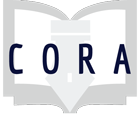This is the first of three sessions where the instructor works with pharmacy students to help then understand how to conduct literature searching and research from an inclusive perspective. The students have already seen the instructor once so emphasis is placed on understanding their current search knowledge, addressing the needs of the group, and then on them exploring how to research topics of patient care with a myriad of voices (not just relying on scholarly works). This is done with many activities and group work.
Kelleen
Primary tabs
| Type | Title | Author | Replies | Last updated |
|---|---|---|---|---|
| Assignment | Aspects of Patient Care: Layering Voices for Inclusive Decision Making | Kelleen | 0 | 2 years 10 months ago |
| Assignment | Reinforcement of Cultural Humility in Searching and Patient Communications | Kelleen | 0 | 3 years 4 weeks ago |
| Assignment | Pharmacy: Aspects of Patient Care Literature Searching | Kelleen | 0 | 3 years 10 months ago |
| Assignment | Advanced Avoiding Plagiarism | Kelleen | 0 | 3 years 11 months ago |
| Assignment | Health Disparities and Literacy for Future Health Care Providers | Kelleen | 1 | 4 years 3 months ago |
| Assignment | Pharmacy: Introduction to Evidence Based Medicine: Building PICO | Kelleen | 0 | 5 years 1 week ago |
| Assignment | Intro to Evaluating Resources | Kelleen | 0 | 5 years 4 months ago |
Assignments Contributed
The sixth in a series of 6 courses, students focus on the Pharmacists’ Patient Care Plan involving prescription medications, patient history, and more complex patient cases. The librarian has already met with these students in other courses so this is and scaffolded approach with this being their last session with the librarian. The purpose of the librarian session is to make sure they feel comfortable doing advanced research on drug information pertaining to specific topics that will be communicated to patients.
The first in a series of six courses, students focus on the Pharmacists’ Patient Care Plan involving prescription medications, patient history and more complex patient cases with an emphasis on culture humility. This one-shot is intended to help solidfy the lessons taught in previous classes I have with the students (such as Boolean and library services) and allow them to explore the needs of searching for traditional, complementary, and alternative medicine.
This lesson was created to help further discuss issues surrounding plagiarism after a quick introduction at orientation. It was created for pharmacy PhD students but I do believe it could be useful for many learner types. A large focus on this lesson was why it is important not to plagiarize with emphasis on oppression through traditional citation and review practices. Inspiration and/or content obtained from: Conner-Gaten, Aisha.
This lesson was given to a health career academy that consists of high school and undergraduate students. The students have a strong interest in careers in the health sciences but have yet to start their education through health sciences programs. The point of the session was to understand how disparities and health literacy intersect and will be important factors in the work they do as learners and providers and to empower the students to use their cultural wealth and voices to make change. I am attaching the slides with notes (which acted as my lesson plan for this session).
This is session 1 of 3 sessions that I do for Introduction to Evidence Based Medicine in Pharmacy. For this session I had about an hour so the majority of the session is group work. Included are the materials to build the activity, an overview of the lesson (since so much was group work, I wouldn't call it a lesson plan), and the rubric for assessing /grading the activity. This was designed for Zoom/online synchronous teaching. A guide was created to assist with the work in the class (with links to all class activities) and be a place for students to refer back to later.
This video was put together to offer health sciences students a brief introduction to critically thinking about their resources in order to evaluate how appropriate they are for use in their work. It was important that the learners understand the complexities of using specific resources and why it is important to always critically evaluate materials. This includes a discussion of critiques of gatekeeping surrounding peer review, how damaging and discriminatory research can still get published, and how to ask crucial questions to subvert dominant narratives.
Assignments Adapted
Put my adaptations up here https://www.projectcora.org/assignment/advanced-avoiding-plagiarism
